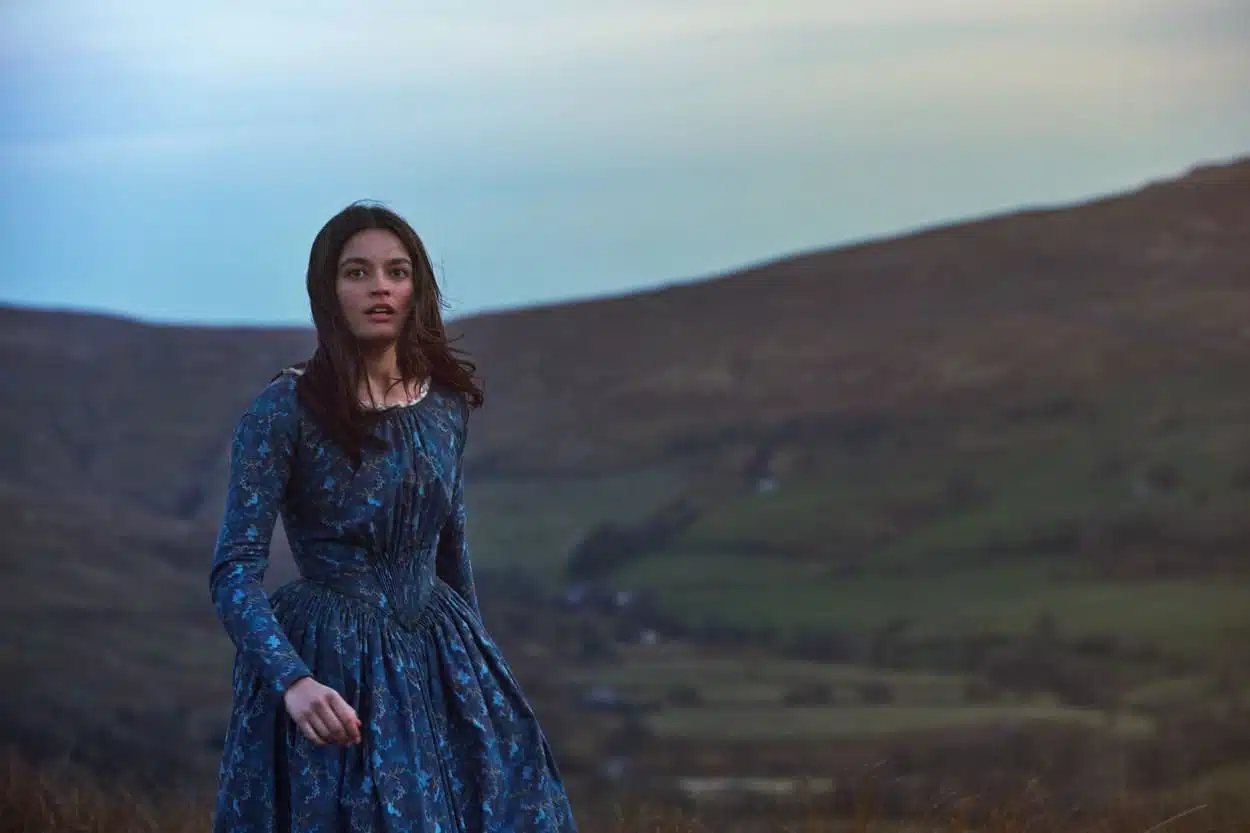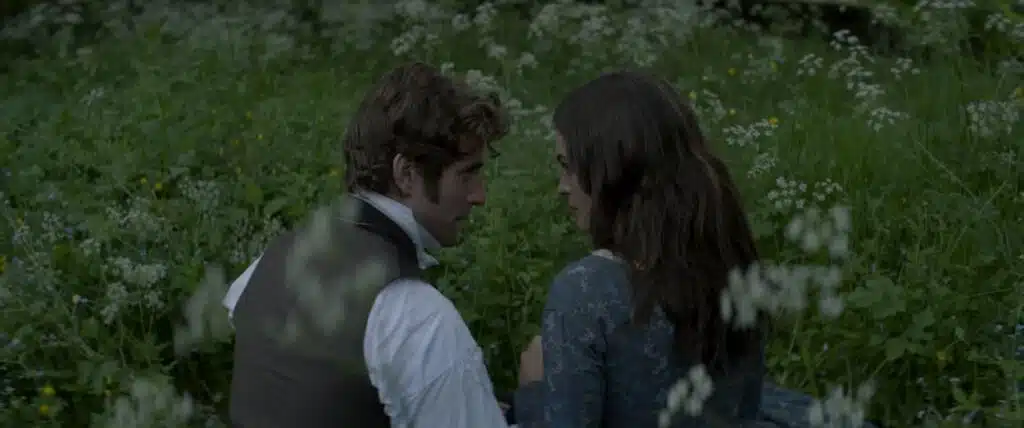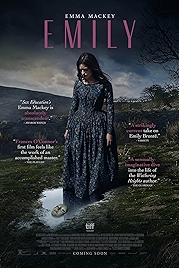“How did you write it? How did you write Wuthering Heights?” Charlotte Brontë asks her sister Emily as Emily lies on her deathbed. Emily is the answer, a feverish blend of fact and fancy, part biography, part romantic extravaganza. It’s tasteful but not twee, gothic but not ridiculously so. Pulling off the impressive feat of being about the life and the work, and taking inspiration from 1940s Hollywood, Frances O’Connor’s debut movie as a writer and director tells the (not very true at all) story of the adult life and death aged 30 of author Emily Brontë.
O’Connor also borrows from Jane Austen for her story of a picky young woman who meets a handsome but bluff man and, after being shocked by his forthright manner, unbeknown to herself becomes entirely infatuated him. The same thing has happened to him, though he also hasn’t realised it. In the way of these things, events and people will eventually conspire to throw these two together and then tear them apart.
Emily is the girl who could but wouldn’t, the disregarded weirdo in a largely can-do family who quietly and unexpectedly emerges from the shadow of three men – her stern but principled father (Adrian Dunbar), her inappropriately close and wayward brother Branwell (Fionn Whitehead) and the hot new vicar in town, William Weightman – to assert her self-sufficiency and independence by writing Wuthering Heights.
Merle Oberon and Laurence Olivier’s Cathy and Heathcliff are there in the playing of Emma Mackey’s Emily and Oliver Jackson-Cohen’s William but, for the avoidance of doubt, this is not primarily about two romantically doomed lovers. O’Connor is much more interested in her heroine than her hero and focuses hard on the character of rationalist, sceptical, nature-loving, bookish, withdrawn Emily, her rivalry with her sisters and her love (possibly more than filial) for her brother. When her camera isn’t taking in vast sweeps of blasted moorland with banks of low cloud always threatening rain, it’s taking in the face of Emma Mackey.
It’s a good face to take in. Beautiful, for a start, but also expressive and there are a wide range of emotions for that face to go to work on. This Emily is by turns erratic, cruel, fearful, mischievous, hopeful, rapturous, ecstatic, crestfallen. In a performance that can only be classed as starmaking, Mackey is to this film what Julie Christie was to Far from the Madding Crowd.
It’s the sort of role O’Connor herself might have played a few years back, when she would turn up in bonnet-y dramas like Mansfield Park or Madame Bovary or the remake of The Importance of Being Earnest.
The question is: why hasn’t she directed before? This is good stuff. Really assured, with the visuals always in the service of the story. Along with DP Nanu Segal O’Connor has decided not to overdo the gothic. It’s there, but elegantly, in the same way that Abel Korzeniowski’s score is gentle and lyrical, with echoes of the Mozart, Schumann and John Field also on the scoundtrack.
There are no madwomen in the attic (to dip into Charlotte Brontë’s version of gothic) but there is Branwell, the brother always threatening to go off the rails and collapse into the arms of alcohol or opium or whatever excess is on offer. And there is often wind howling, rain hammering against windows and dark skies portending doom.
Woven through there’s also music and laughter and even passionate sex. Plus a good time-bomb joke about the literary ambitions of the rest of the family. At an early point Branwell mansplains to Emily about writing – ho, ho, ho. Later, it’s Charlotte Brontë who’ll be at the wrong end of the joke when she first reads Emily’s completed manuscript of Wuthering Heights and collapses in a swoon on the floor. A five-star review, gothic style.
Emily – Watch it/buy it at Amazon
I am an Amazon affiliate
© Steve Morrissey 2023


